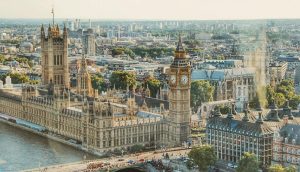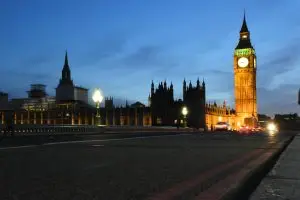The momentum behind COP26 has created an apparently benign climate for low carbon investment in the UK, however that could all change at next week’s Scottish Parliament election. The 2021 Scottish Parliament elections will be the latest in a series of public ballots, since 2014’s Scottish Referendum, where the future of the United Kingdom is at stake. Due to Brexit and COVID19 it has perhaps been understated how important the Scottish election will be. However, depending upon its result, we could see British politics dominated by the issue of Scottish independence in the same way it was dominated by Brexit in recent years. Businesses whose investments depend on policy decisions yet to come must be mindful of this. As the question of Scottish Independence may leave politicians and officials will little time to consider anything else.
Should the SNP win a majority at next week’s Scottish elections it will re-energise its drive for Scottish independence. Independence has been the major theme of the SNPs campaign. Further the SNPs leader, Scotland’s First Minister, Nicola Sturgeon, has gone on record stating that a vote for her party should be seen as a vote for another referendum. She has also claimed that she does not believe Westminster could stand in the way of that mandate.[1]
Recent polls have called into question whether the SNP can win a majority. A Sevanta ComRes poll released on 29 April 2021 showed the SNP support for the SNP slipping at both Holyrood Constituency and List levels: By 1 and 2 points, respectively. Results that would see the SNP fail to win a majority next week. They also showed support for Scottish independence declining by 2 points to 42 per cent, while support for remaining in the UK increased to 49 per cent.[2]
The polling is suitably close enough that nothing can be taken for granted though. Research published on 28 April 2021 from Lord Ashcroft highlighted that: ‘those naming the nationalists as their most likely choice put their chances of actually turning out to vote for them higher than those of other parties’ potential backers.’[3] Lord Ashcroft also noted that Scots feel that their politics cannot move on with the referendum question hanging over their heads.[4] This is very similar to the approach many Brits took to the 2019 UK Parliament elections, where the message ‘Get Brexit Done’ resonated with those who simply wanted to settle the question decisively and put it behind them.
Should the SNP win a Holyrood majority business needs to significantly step-up engagement with decision makers. An SNP victory is likely to result in a major constitutional crisis, and it is very likely that deciding how to respond will consume much of the Johnson Government’s time. This would only be increased should the UK Government concede to the demand for another referendum. As we saw with the Brexit referendum, where effectively the policy process was largely paused from 2016 first to fight the referendum and then manage its fallout. Businesses that are waiting for any kind of government decision will need to act quickly and press for rapid resolutions. Otherwise, they could find the decisions they have been waiting for delayed for the foreseeable future.
BREVIA CONSULTING PROVIDES STRAIGHTFORWARD POLITICAL AND COMMUNICATIONS SUPPORT TO BUSINESSES AND ORGANISATIONS
Discover how Brevia can help you and your organisation by contacting the Brevia Energy Team on 020 7091 1650 or emailing us at: contact@brevia.co.uk
[1] Guardian, 11 April 2021, link
[2] SevantaComres, Twitter, 29 April 2021, link, link & link



